|

February 5 – 9, 2024
|
|
|
For years, Utah and the American West have seen catastrophic wildfires and other natural disasters which have, in many cases, been strikingly difficult to recover from. This week, Senator Romney introduced two key pieces of legislation—one aimed at bolstering our ability to restore water infrastructure damaged by wildfires and the other to avoid deficit spending on disaster relief by requiring Congress to plan ahead. He also pushed for his legislation to stabilize the national debt, argued against calls for socialist healthcare policies, and met with several Utahns. Scroll for more news.

|
|
During the Dollar Ridge Fire in 2018, the Central Utah Water Conservancy District faced major obstacles in repairing its facilities—which is just one of many examples proving that we need to streamline the funding process to restore water resources on U.S. Forest Service lands.
Senators Romney and Bennet (D-CO), along with Representatives Maloy (R-UT) and Curtis (R-UT), introduced the Watershed Protection and Forest Recovery Act, bipartisan legislation to help communities and water users protect their water supply after natural disasters on U.S. Forest Service lands. The bicameral legislation would create a new Emergency Forest Watershed Program at the U.S. Department of Agriculture to streamline recovery efforts and protect life, private property, and water resources downstream of America’s national forests.

Full story by Sharon Udasin here.

For too long, Congress has failed to account for natural disasters when crafting the budget, which results in billions of dollars being borrowed and added to the national debt each year. Senators Romney (R-UT) and Braun (R-IN) reintroduced the Budgeting for Disasters Act, legislation which would require Congress to include disaster spending into the annual budget process—helping ensure that funding is readily available to communities for disaster relief during these emergencies, while also saving taxpayers billions of dollars in avoidable spending.


The United States economy is becoming more fragile as we continue to ignore our mounting public debt crisis. Without immediate action to address the national debt, we risk economic collapse and losing our place as leader of the free world—which would make room for authoritarian states like China to command the global order. Senator Romney met with Committee For a Responsible Federal Budget President Maya Macguineas and Erskine Bowles to discuss legislative solutions to stabilize and decrease our national debt, including creating a bipartisan, bicameral fiscal commission.
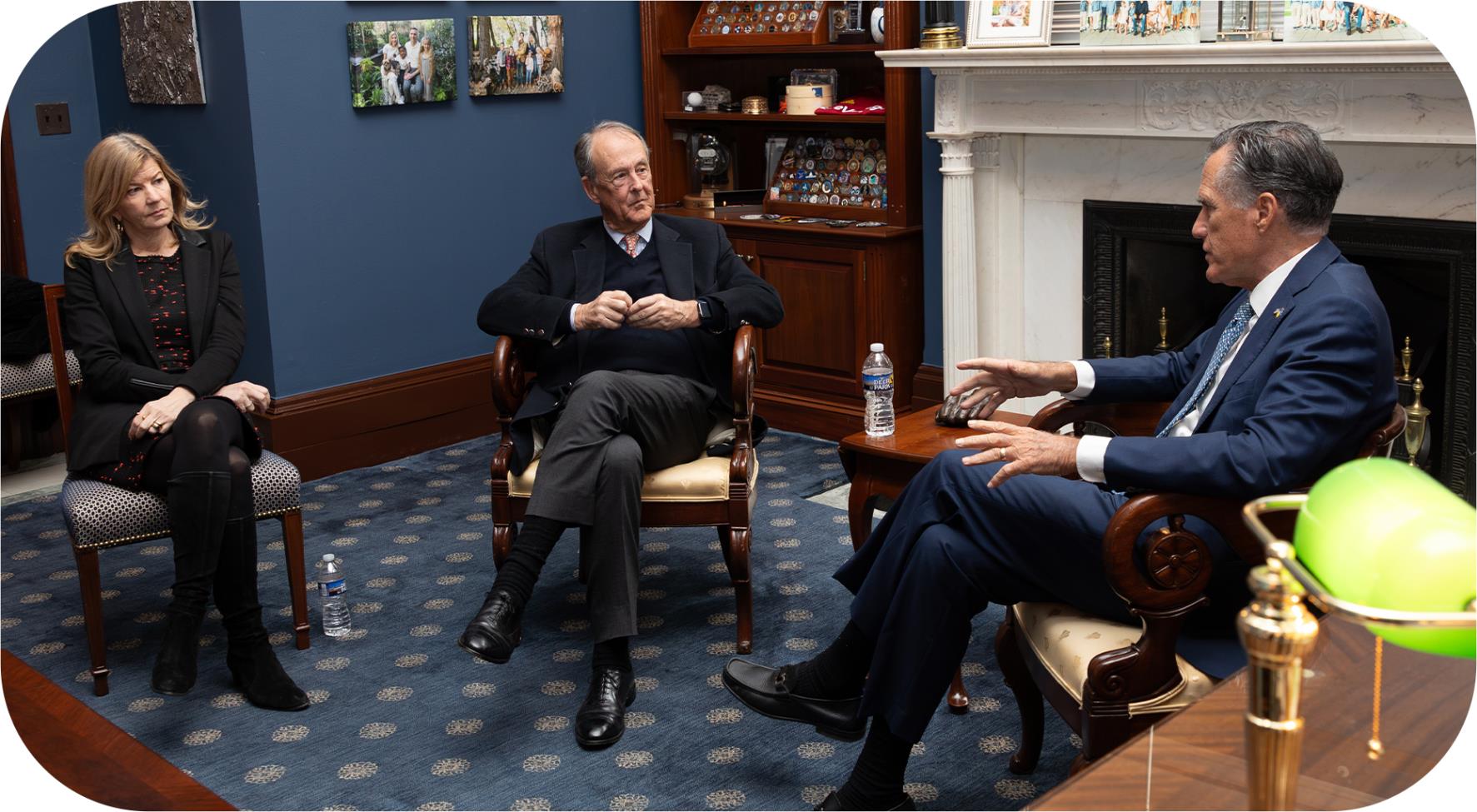
Prior to their meeting, the Congressional Budget Office, which provides Congress with a nonpartisan analysis on budget matters, released its Budget and Economic Outlook: 2024 to 2034 report. The report estimates that net interest expense on the national debt will exceed both defense and non-defense discretionary spending this year. It also projected federal interest expense to increase from $659 billion last year to $870 billion this year. Senator Romney shared the following statement on the report:
“These projections are harrowing. The fact that we are expected to spend more on interest on the debt than on our national defense this year should scare us all—we are playing with fire by not taking immediate action to stabilize the debt. Our bipartisan Fiscal Stability Act applies lessons learned from the past to ensure a fiscal commission can successfully design measures to put America’s finances on a sustainable path.”
Learn more about Senator Romney’s Fiscal Stability Act here.

Setting price controls on prescription drugs is socialism lite, and while that may sound enticing to some, socialized medicine does not produce new drugs and it does not lead to cures for diseases. During a Senate Health Committee hearing with CEOs of major pharmaceutical companies, Senator Romney argued that we need to lower the cost of drugs for patients without impeding innovation or access to care—which policies like price controls would do.
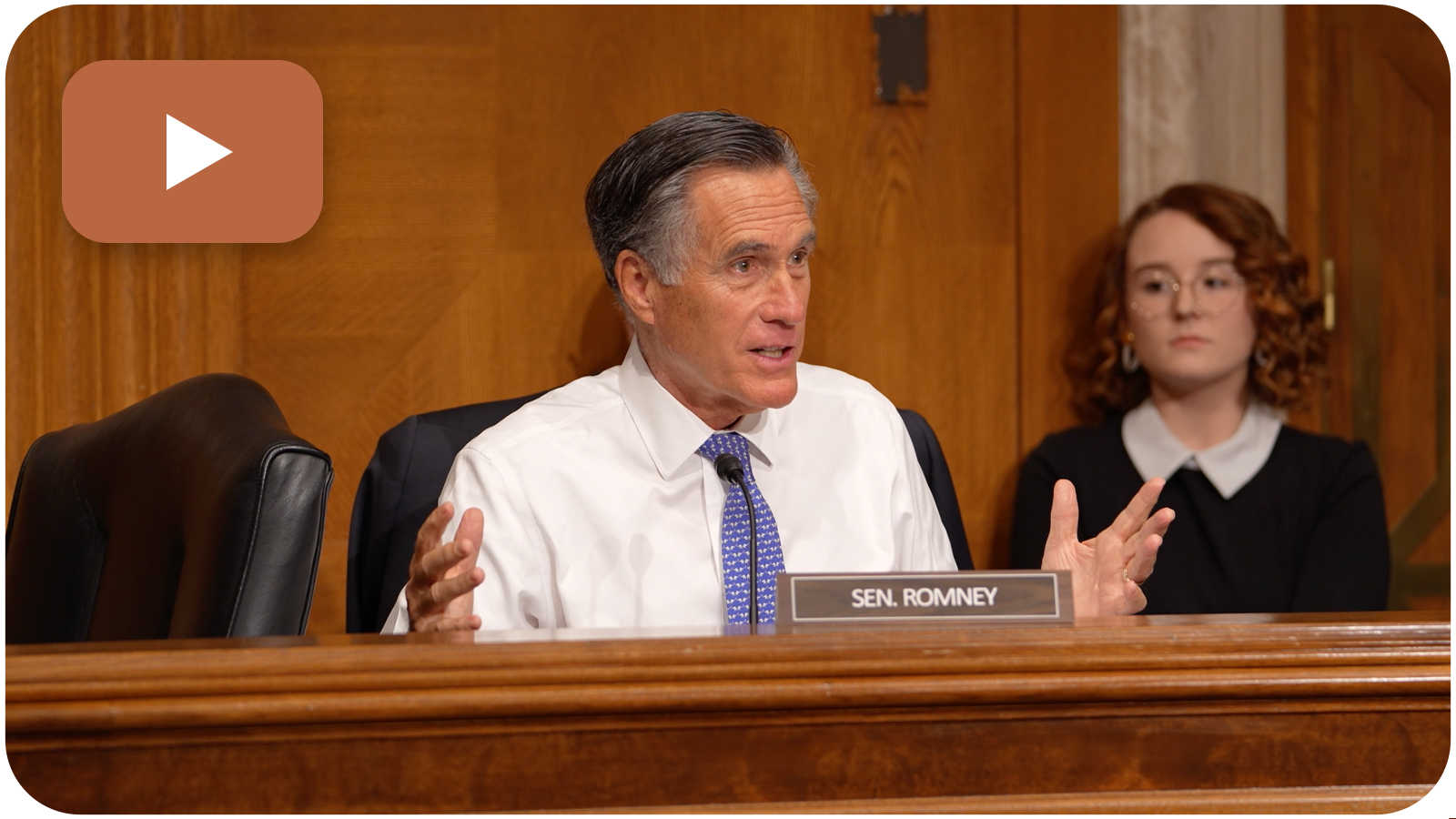

The United States-Japan alliance is fundamental to stability and prosperity in the Indo-Pacific region, and important to both nations’ economies. Senator Romney, Ranking Member of the Senate Foreign Relations Subcommittee on East Asia and the Pacific, met with the Japanese Ambassador to the U.S. Shigeo Yamada to discuss our countries’ shared values—including promoting robust trade and countering threats posed by China and Russia.
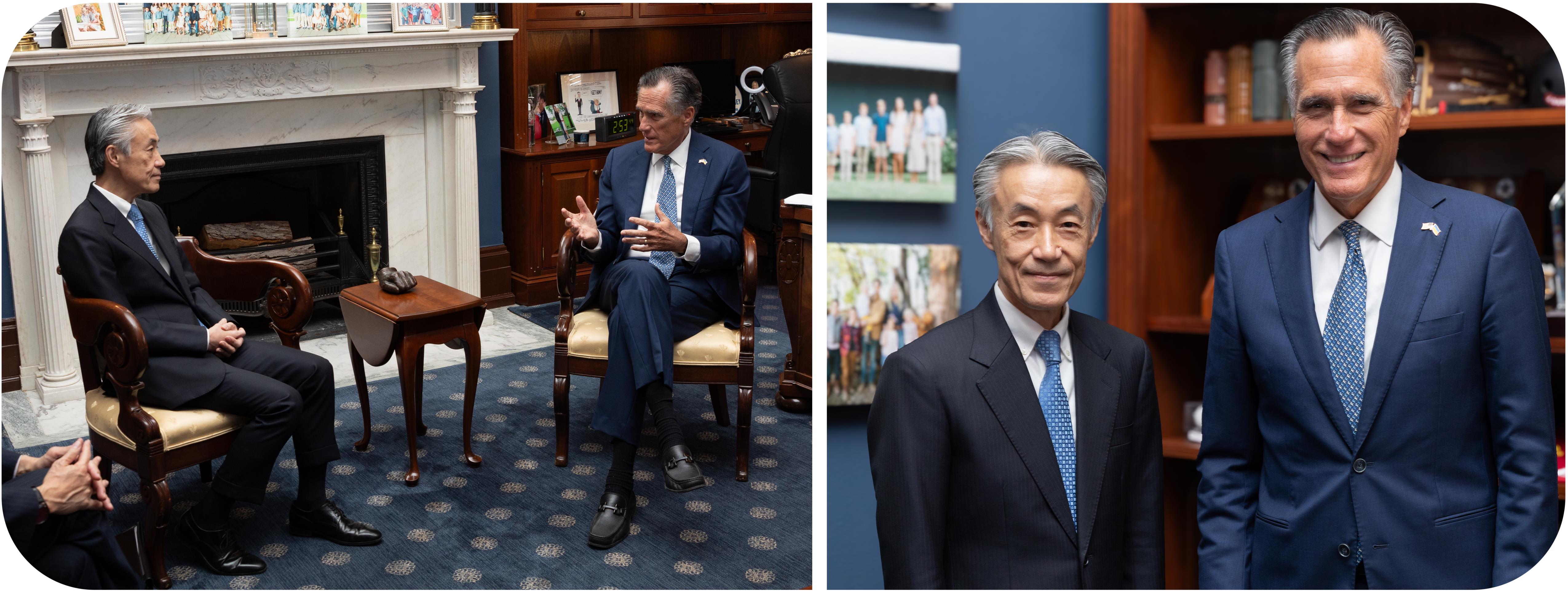
Prior to their meeting, Senator Romney joined a bipartisan group of his colleagues in sending a letter to House Speaker Mike Johnson (R-LA) encouraging him to invite Japanese Prime Minister Fumio Kishida to address a Joint Session of Congress during his Official Visit to the United States in April 2024.

Utah's population and economy continue to grow at a rapid rate, and it's critical that smart investments are made in our state’s transportation infrastructure to maintain our quality of life. The bipartisan infrastructure bill has provided significant funding over the past two years to help improve and expand Utah’s roads, highways, and public transit. Senator Romney met with Utah Department of Transportation Director Carlos Braceras to discuss current projects—like expanding Frontrunner capacity—that will support Utah's needs and better equip us to host the Olympics in the future.
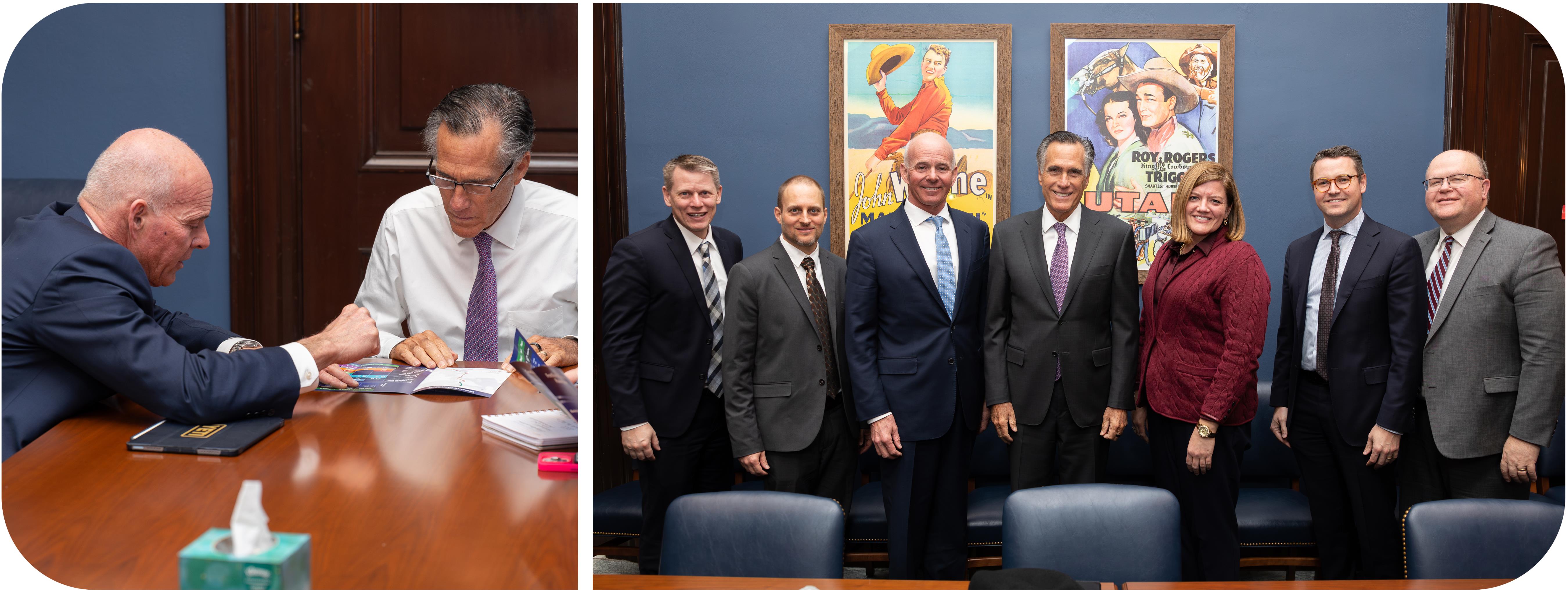

Over the past decade under President Deneece Huftalin’s leadership, Salt Lake Community College has seen significant success in preparing Utah students for good-paying and meaningful jobs that are in demand in our state. Senator Romney met with President Huftalin and other members of the SLCC leadership team to discuss legislation to better support community colleges—like his College Transparency Act—and thank her for her more than decade of exemplary service to Utah’s higher education system.
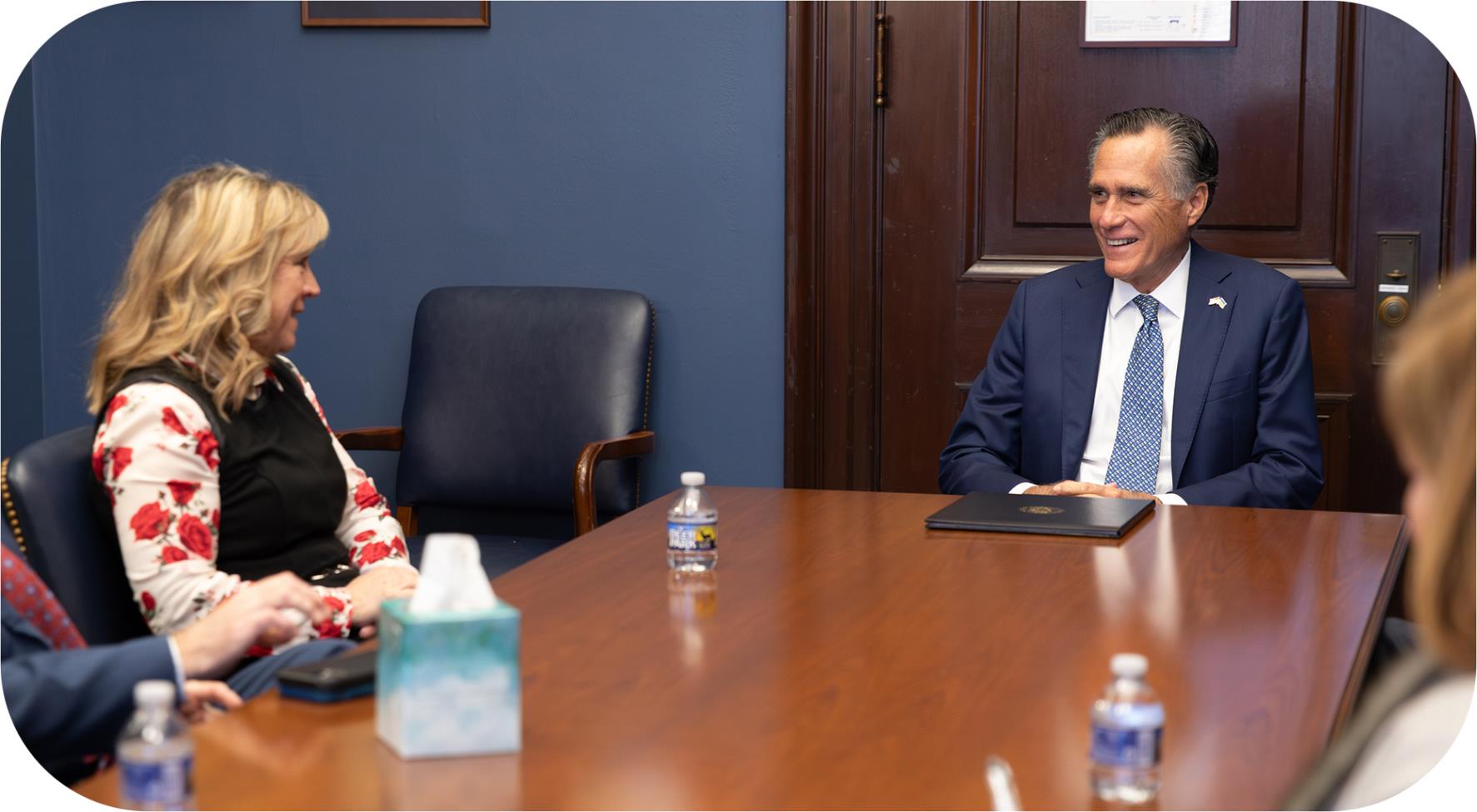

The latest rules implemented by the Biden Administration to impose emission performance measures on state departments of transportation are yet another example of Washington pretending to know what’s best for individual states. It is unserious to expect that Utah could meet these unattainable standards—especially for the Utahns who live and work in the rural parts of the state. Their ability to work, travel, and go about their daily lives would be severely restricted.
Senator Romney joined his colleagues, led by Senators Cramer (R-ND), Capito (R-WV), and Manchin (D-WV), in introducing a bicameral, bipartisan Congressional Review Act Joint Resolution of Disapproval to nullify the Administration’s highway rule and illustrate Congress’ objection to this federal overreach.

Intellectual challenges should never inhibit access to the power of sports and physical activity. Senator Romney met with Utah Special Olympics leaders and athletes to discuss how we can continue to support their mission to build community and empower folks with intellectual disabilities.
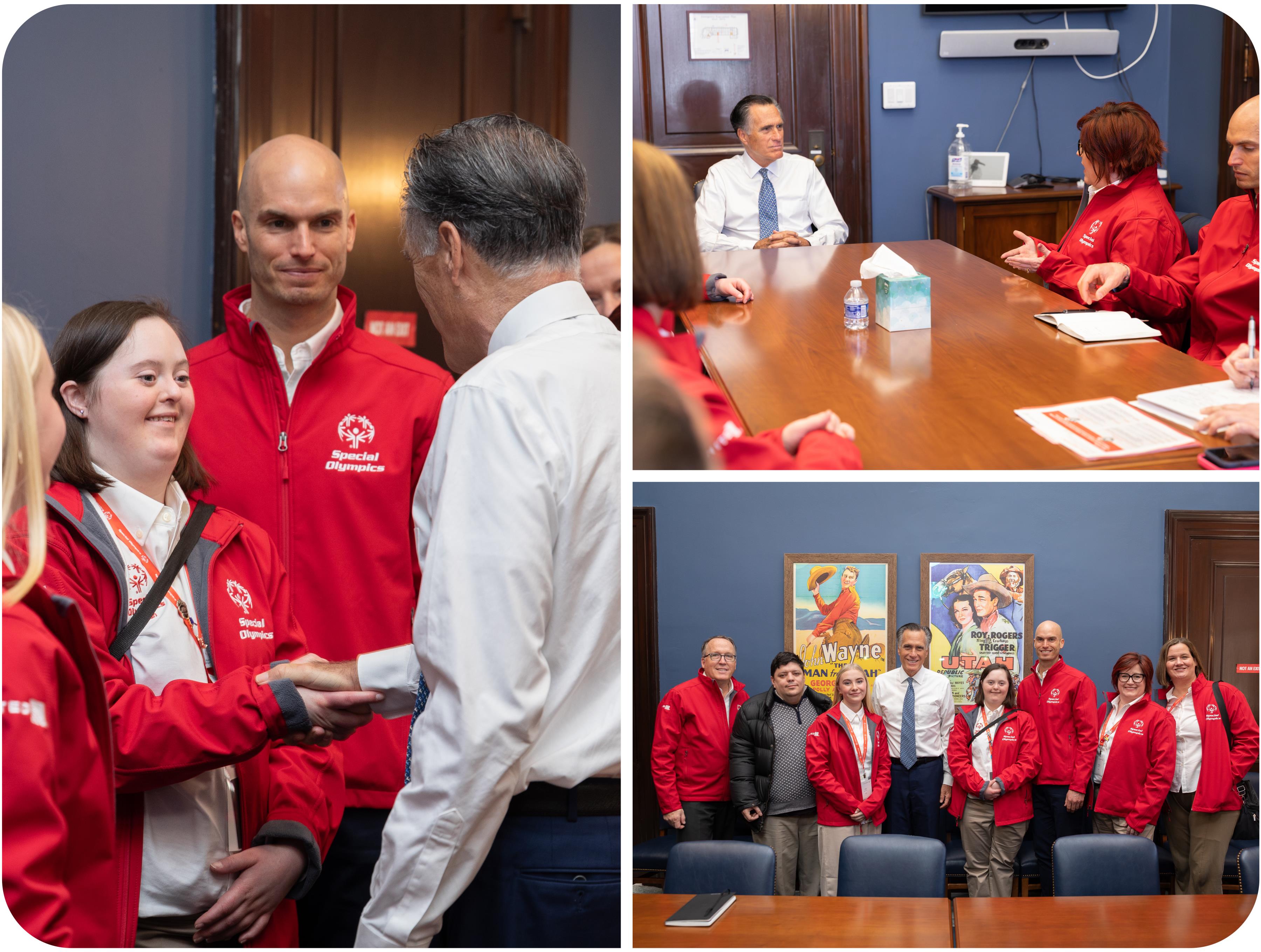
|
|

|
|
 
|
|